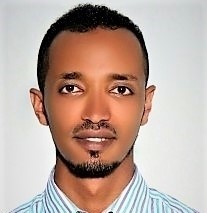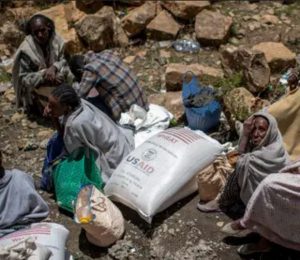IN A NUTSHELL Author's noteFor decades, the United States Agency for International Development (USAID) has been a cornerstone of global health support in Africa, channeling billions into combating infectious diseases, malnutrition, and strengthening healthcare infrastructure. Programs targeting HIV/AIDS, malaria, maternal health, and nutrition—such as PEPFAR and Feed the Future—have saved millions of lives. However, recent discussions about the potential termination of USAID funding raise critical questions: How will Africa cope? Is the continent prepared to sustain these vital health gains independently?

By Kirubel Workiye Gebretsadik
Medical Doctor, Ras Desta Damtew Memorial Hospital
Addis Ababa, Ethiopia
Navigating a New Era
Africa’s Health Systems after USAID Funding and the Road Ahead
The Lifeline of USAID Funding
USAID’s contributions have been transformative. For example:
- HIV/AIDS: PEPFAR has provided antiretroviral therapy to over 15 million Africans.
- Malaria: Investments in bed nets and treatments helped reduce mortality by 44% since 2000.
- Nutrition: Programs like Feed the Future improved food security for 23.4 million people.
These initiatives often fill gaps in underfunded national health budgets, particularly in fragile economies. Countries heavily reliant on aid, such as Ethiopia, Malawi and Mozambique, may feel the pinch acutely, while others with diversified funding streams could fare better.
Africa’s Preparedness: A Shift toward Self-Reliance
While the loss of USAID funding is a blow, Africa has been laying groundwork to reduce dependency:
- Domestic Health Financing:
- Rwanda and Ghana now allocate over 15% of their budgets to healthcare (per the Abuja Declaration), investing in national health insurance and community-based care.
- Kenya’s “Linda Mama” program offers free maternal health services, funded domestically.
- Regional Collaboration:
- The Africa CDC, established in 2017, has strengthened outbreak responses, exemplified during COVID-19 and Ebola crises.
- The African Union’s Partnerships for African Vaccine Manufacturing (PAVM) aims to produce 60% of the continent’s vaccines locally by 2040.
- Innovation and Technology:
- Digital tools like Kenya’s M-Tiba (mobile health financing) and drone delivery of medicines in Ghana are bridging gaps in access.
- Startups are tackling malnutrition with fortified foods, such as Nigeria’s Releaf Group, which processes nutrient-rich crops.
Challenges Ahead
Despite progress, hurdles persist:
- Funding Gaps: Many nations struggle to mobilize domestic resources due to economic inequalities and debt burdens.
- Infrastructure Deficits: Rural areas still lack clinics, labs, and trained personnel.
- Political Instability: Conflicts in regions like the Sahel and Sudan disrupt health services.
- Brain Drain: Medical professionals often emigrate for better opportunities, weakening local systems.
The Path Forward
The termination of USAID funding is a pivotal moment for Africa. While the continent has made strides in self-reliance, the transition requires nuanced strategies:
- Sustainable Financing: Expanding health insurance and taxing sectors like extractive industries could boost domestic funding.
- Strengthening Partnerships: Engaging diaspora communities, private sector actors, and regional blocs can foster resilience.
- Advocacy for Equity: Global solidarity remains critical. Wealthier nations must honor commitments to climate and health financing, recognizing that disease knows no borders.
Africa’s journey toward health sovereignty is fraught with challenges but also brimming with innovation and determination. As the continent reimagines its future, the world must pivot from aid to equitable partnerships—because health security anywhere depends on solidarity everywhere. By investing in homegrown solutions and equitable systems, Africa can turn crisis into opportunity, ensuring health for all remains within reach.
__
By the same Author on PEAH Stroke Awareness and Africa Neglected Tropical Diseases: Lessons for Future Pandemics and Global Health Preparedness Forgone Health Care Among Patients With Cardiovascular Disease UNMET HEALTHCARE Malaria Eradication and Prevention through Innovation ONE HEALTH ONE WORLD Social Innovation in Healthcare
